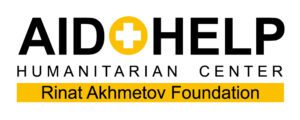
President of Ukraine Volodymyr Zelensky announced a state program for the construction of housing for those who lost it as a result of the occupation, as well as for the military, law enforcement officers, teachers and other public sector employees.
“At the first stage, temporary housing should be provided to displaced persons, those whose houses were destroyed by the war. Temporary – until we restore their housing. Or until people are compensated in square meters or money,” he said in a traditional video message on Saturday evening.
According to the president, at the second stage, “we are restoring what the occupiers tried to destroy – all the cities, communities that suffered.” “And at the third stage, we will provide housing for everyone who defended our state, who worked or is working in the interests of society, but did not have their own housing. It cannot be that a person gives everything, his life to military service, and retires without having his own apartment,” Zelensky said.
“I believe that we will be able not only to restore what was destroyed, but also to restore justice for those whose right to housing has been violated,” he said.

President of Ukraine Volodymyr Zelensky had a conversation with Prime Minister of Sweden Magdalena Andersson.
“I spoke with Swedish Prime Minister Magdalena Andersson. He spoke about the critical situation in Mariupol. We discussed defense support for Ukraine, strengthening anti-Russian sanctions. I thanked for supporting Ukraine’s accession to the EU,” Zelensky wrote on Twitter.

President Volodymyr Zelensky said that the United Kingdom, the United States, Italy and Turkey demonstrate their readiness to become guarantors of Ukraine’s security, but there is still no final answer from anyone
“Today, those who demonstrate that they are ready – we don’t have any signatories yet, but there is a demonstration – from Johnson, from Britain, from the USA, from Italy, from Turkey. I think it will be separate from the European Union,” reports he said, said on Saturday in an interview with the Ukrainian online media outlet Ukrayinska Pravda.
“I spoke separately with Ursula (President of the European Commission Ursula von der Leyen), separately with Charles Michel (Head of the European Council Charles Michel – UP), France, Germany.
We will do the first circle of conversation in this format for five (Britain, USA, Germany, France, Poland). Then other countries will join,” Zelensky said.
According to the publication, Zelensky believes that Ukraine will not have a problem with weapons or sanctions against the aggressor country, but there will be issues with the military component.

The Rinat Akhmetov Foundation is the most famous Ukrainian charitable organization, according to a survey conducted by Info Sapiens.
“So, 94.3% of the polled Ukrainians named it without prompting. In second place is the International Committee of the Red Cross (70% named it), in third place is the Pinchuk Foundation (45.3%),” Info Sapiens said in a report on the results of the study released on Friday.
Only those organizations that scored more than 1% of spontaneous knowledge about Ukraine in November-December 2021 were included in the list. It is assumed that if the study were conducted now, the Come Back Alive Foundation and other funds that help the Armed Forces of Ukraine would have made the list, but before the war they scored less than 1% in spontaneous knowledge.
In addition, the Rinat Akhmetov Foundation is the leader in philanthropy in Ukraine. Almost half of Ukrainians consider the Rinat Akhmetov Foundation the largest charitable organization in Ukraine. 76% of Ukrainians positively assess its activities.

KMZ Industries (Karlovsky Machine-Building Plant, Poltava region), continues to implement contracts for the supply of equipment in the conditions of the armed invasion of Ukraine by the Russian Federation, now the company supplies products for granaries in Vinnytsia, Lviv and Cherkasy regions.
The implementation of existing and conclusion of new contracts in the current season is reported on the Facebook page of KMZ on Friday.
According to the company, silos and transport equipment are currently being delivered for the construction of a granary with a total capacity of 60,500 tonnes in Vinnytsia region.
“In Lviv region, we are completing connection to power lines and commissioning at a farm silo. It will be able to receive 3,000 tonnes of grain. In addition, next week we will complete the shipment of transport equipment with a capacity of 175 tonnes per hour to Cherkasy region,” KMZ Industries added.
KMZ Industries produces silos on a flat base, cone bottom, flour storage silos, mine grain dryers Brice-Baker (British design) and chipboard (Ukrainian design), transport equipment (elevators, chain, belt and screw conveyors), separators for grain cleaning, installs and automates elevator equipment and technological processes at granaries.
As of the fourth quarter of 2021, Dragon Capital Investments Limited (Cyprus), whose ultimate beneficiary is Tomas Fiala, owns 80% of the shares of KMZ Industries, Variant Agro Bud LLC holds 20%.

The amount of charitable assistance received for Ukraine from citizens and corporations from around the world has reached almost $924 million, and the funds continue to flow, according to the website of the Office of the President on Thursday.
“They (funds – IF) go mainly to the accounts of UN agencies and international humanitarian organizations. And they, in turn, send them to help our refugees in different countries,” said Andriy Yermak, head of the President’s Office, head of the Coordination Headquarters for Humanitarian and Social Affairs .
Most of the funds came from philanthropists from the UK (47%), the Netherlands (almost 18%), the Czech Republic (11%) and the USA (almost 8%).
Yulia Sokolovskaya, Deputy Head of the Office of the President, noted that 270,000 tons of humanitarian aid were brought into Ukraine in 50 days. Food was purchased from Ukrainian producers and food packages were completed for almost 12 million Ukrainians.
As First Vice Prime Minister – Minister of Economy of Ukraine Yulia Sviridenko noted, on the western border with Poland, Hungary, Romania, Moldova, Slovakia, logistics centers were deployed in the first week, where international donors and partners send humanitarian aid.
The Lviv region has become the largest humanitarian aid hub in Ukraine, accepting 51% of the cargoes with help from abroad.
From humanitarian hubs located throughout the country, the cargo is distributed among regional military administrations, charitable organizations, local governments, public organizations and volunteers, said Deputy Head of the President’s Office Kyrylo Tymoshenko.
In addition, according to him, using the help.gov.ua platform, people from all over the world fill out questionnaires every day and send help to Ukraine.